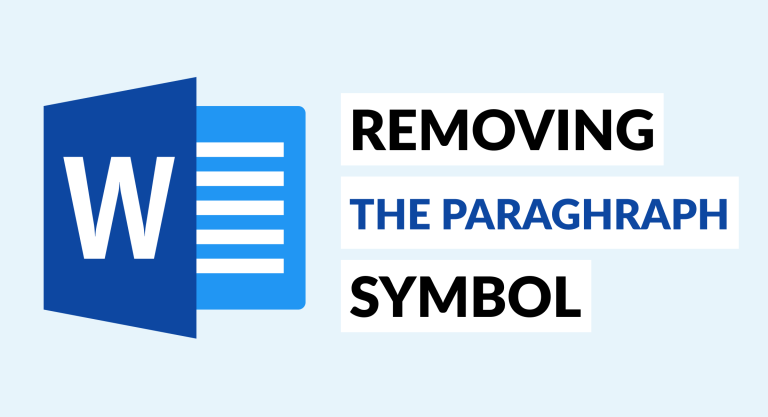
The Link Between Faster Approvals and Business Growth
- Approval automation
- Workflow optimization
- 10 min read
In the fast-paced world of business, the ability to respond quickly to opportunities is a key driver of success. One critical factor in this agility is the process of approvals, which can significantly influence how swiftly organizations move forward with projects, initiatives, and customer demands. Delays in approvals often lead to missed opportunities and stagnation, while streamlined approval processes can pave the way for innovation and growth.
Faster approvals not only enhance operational efficiency but also foster a culture of responsiveness within teams. When decisions are made swiftly, businesses can adapt to market changes, capitalize on emerging trends, and deliver products or services to customers faster. This responsiveness is crucial in gaining a competitive edge and fostering sustainable growth.
Moreover, the speed of approvals can have a cascading effect on customer satisfaction. In a world where consumers expect immediate solutions, organizations that can accelerate their approval processes are better positioned to meet and exceed these expectations. As a result, faster approvals can significantly contribute to customer loyalty and long-term success.
In this article, we’ll explore the benefits of achieving faster approval cycles and how they are intrinsically linked to driving business growth in today’s dynamic environment.

The Cost of Delayed Approvals
Faster approvals not only contribute to business growth but also enhance collaboration and productivity within organizations, creating a more efficient and innovative work environment.
Delayed approvals can have several negative impacts on an organization:
- Increased Costs: Every day a decision is postponed can lead to higher costs, whether through wasted resources or stalled projects that incur additional expenses.
- Lost Opportunities: Delays can result in missed opportunities, particularly in fast-moving markets where timing is crucial.
- Decreased Morale: When approvals lag, it can lead to frustration among employees, which may affect their motivation and productivity levels.
- Poor Client Relations: Delays can harm relationships with clients, especially if projects cannot be delivered on time.
By understanding the importance of faster approvals and the costs associated with delays, organizations can implement strategies to streamline their approval processes, ultimately enhancing overall performance.
Faster Approvals as a Competitive Advantage
In a highly competitive business environment, faster approvals can serve as a key differentiator for organizations. Companies that streamline their approval processes position themselves to respond quickly to market demands and changes, thus gaining a significant edge over their competitors.
- Quicker Time-to-Market: Organizations with expedited approval processes can launch new products and services faster. This agility allows them to capitalize on market trends and respond to consumer needs ahead of competitors.
- Enhanced Customer Satisfaction: Faster approvals lead to quicker project completions and service delivery, improving customer satisfaction. Happy customers are more likely to become repeat clients and offer positive referrals.
- Increased Innovation: When approvals are swift, employees are more encouraged to present new ideas and solutions without the fear of prolonged waiting times. This culture of innovation can lead to breakthrough products and services.
- Better Resource Allocation: With quicker decision-making, teams can allocate resources more effectively and adjust project timelines based on real-time needs, enhancing overall organizational efficiency.
By leveraging faster approvals as a competitive advantage, businesses can not only improve their operational effectiveness but also create a more dynamic and responsive organization.

Faster approvals are a key driver of business growth, enabling organizations to make timely decisions that capitalize on market opportunities.
Accelerating Time-to-Market
Accelerating time-to-market is crucial for businesses looking to outpace competitors and gain market share. Here are key benefits and strategies:
- Competitive Advantage: By significantly reducing time-to-market, companies can launch products and services before their rivals do, capturing attention and market presence early.
- Customer Feedback Integration: Faster time-to-market allows businesses to gather and integrate customer feedback more quickly, ensuring that products are aligned with market needs and preferences.
- Lean Decision-Making: Implementing lean management practices can eliminate bottlenecks in the approval process. Using tools such as digital workflows and automation enhances efficiency and reduces approval times.
- Focus on Key Metrics: Businesses should track key performance indicators (KPIs) related to approval times and time-to-market, enabling data-driven strategies for continuous improvement.
Improved Collaboration and Productivity
Faster approvals also enhance collaboration and productivity across teams, resulting in a more dynamic work environment. Here’s how:
- Cross-Departmental Synergy: Quick approvals facilitate smoother communication and collaboration among different departments, breaking down silos that often hinder productivity.
- Empowered Teams: Teams empowered by rapid decision-making can work more autonomously, allowing them to leverage collective skills and expertise effectively.
- Optimized Workflow: Streamlining approval processes reduces waiting times, enabling teams to spend more time on execution and less on chasing approvals, which directly boosts productivity.
- Alignment on Goals: When approvals are expedited, there’s a clearer alignment on company objectives across teams, leading to focused efforts and improved outcomes.
Enhanced Customer Satisfaction
Enhancing customer satisfaction is crucial for the success and longevity of any business. Quick approvals play a significant role in achieving this goal through various means:
- Timely Service Delivery: When businesses have faster approval processes, products and services can be delivered to customers more quickly. This responsiveness leads to increased customer satisfaction as their needs are met promptly.
- Improved Quality of Service: A streamlined approval process enables quicker resolution of customer issues and inquiries. Customers appreciate timely support, which enhances their overall experience with the brand.
- Personalization Opportunities: Faster approvals allow companies to adapt products and services based on customer feedback more efficiently. This personalization fosters a deeper connection with customers and builds loyalty.
- Proactive Engagement: With reduced delays, businesses can engage proactively with their customers, anticipating needs and preferences. This proactive approach is often perceived positively, further enhancing customer satisfaction.
- Consistency and Reliability: Customers value consistency. By ensuring quick and efficient approvals, businesses can establish reliable processes that customers can count on, leading to increased trust in the brand.

Eliminating bottlenecks in approval processes is essential for increasing efficiency and enhancing customer satisfaction. Here’s how to tackle this challenge:
1. Analyze Current Processes:
- Conduct a thorough review of existing approval workflows;
- Identify stages that consistently cause delays.
2. Utilize Automation Tools:
- Implement automated systems to handle routine approval tasks;
- This reduces manual intervention and speeds up the process.
3. Establish Clear Guidelines:
- Clearly define roles and responsibilities;
- This helps eliminate confusion and streamlines decision-making.
4. Regular Training and Updates:
- Provide ongoing training for employees involved in the approval process;
- Keep everyone updated about new systems or changes.
5. Feedback Mechanism:
- Create channels for receiving feedback from employees and customers;
- Use this information to identify persistent issues and streamline processes.
Identifying Common Bottlenecks
Common bottlenecks in the approval process can include:
- Overly Complicated Procedures: too many steps can slow down approval times.
- Lack of Communication: delays caused by unclear communication between departments or team members.
- Inadequate Resources: insufficient staff or tools can lead to backlogs.
- Approval Authority Conflicts: uncertainty over who has authority to approve certain decisions can cause delays.
- High Volume of Requests: an influx of requests can overwhelm the existing approval process.
Leveraging Technology for Streamlined Approvals
Using technology effectively can greatly enhance the efficiency of approval processes. Here are some strategies:
1. Workflow Management Software:
- Implement tools like Approveit, Asana or Trello to visualize and track progress of approval requests;
- This creates transparency and allows for real-time updates.
2. Electronic Signatures:
- Adopt e-signature solutions such as DocuSign or Adobe Sign to reduce the time spent on approvals;
- This speeds up the signing process and eliminates the need for physical paperwork.
3. Document Management Systems:
- Utilize platforms like Google Drive or Dropbox to securely store and share documents;
- This ensures that all stakeholders have access to necessary files without delay.
4. Automated Notifications and Reminders:
- Set up automated alerts for pending approvals;
- This ensures that no requests fall through the cracks and deadlines are met.
5. Integrated Communication Tools:
- Use tools like Slack or Microsoft Teams for seamless communication about approval requests;
- This minimizes delays caused by waiting for responses via email.
6. Analytics and Reporting Tools:
- Employ analytics to track the approval process;
- Identifying trends and bottlenecks helps in continuous improvement

The Connection Between Speed and Agility
Enhancing decision-making speed directly contributes to greater agility, ultimately leading to improved performance and success in the competitive business landscape.
The correlation between decision-making speed and business agility is evident, as both elements complement each other:
1. Flexible Structures:
- Agile organizations often have less hierarchical structures that facilitate quicker decision-making. This flexibility supports rapid responses to challenges and opportunities.
2. Empowered Teams:
- In agile environments, teams are empowered to make decisions autonomously, which enhances the speed of execution and reduces bottlenecks.
3. Continuous Learning and Adaptation:
- Companies that prioritize speed are also inclined to learn continuously. They adapt swiftly to feedback, aligning strategies with market demands.
4. Culture of Agility:
- Organizations that focus on speed cultivate a culture that embraces change, empowering employees to act quickly in pursuit of business goals.
Empowering Teams with Real-Time Insights
By integrating real-time insights into their workflows, organizations can empower teams to operate more effectively, ensuring they are adaptive and resilient in a rapidly changing environment.
Providing teams with real-time insights is essential for driving performance and fostering collaboration. Here are some key aspects:
- Real-time insights enable teams to make informed decisions based on the latest data, reducing guesswork and enhancing accuracy.
- Access to real-time information facilitates better communication among team members, as everyone is aligned with the most current updates and trends.
- Teams can quickly respond to changing circumstances, such as market dynamics or customer feedback, ensuring they stay ahead of competitors.
- With real-time insights, team members can track progress towards goals, leading to increased accountability and ownership of their tasks.
- Teams equipped with real-time data can identify potential issues before they escalate, allowing for proactive solutions.
- Access to up-to-date customer data enables teams to tailor their approaches, enhancing engagement and improving the overall customer experience.
The connection between faster approvals and business growth is undeniable. Streamlined approval processes empower organizations to act swiftly in a competitive landscape, ultimately enhancing operational efficiency and responsiveness. By minimizing delays, businesses can seize market opportunities, adapt to changing conditions, and deliver exceptional value to their customers.
Moreover, the positive impact of accelerated approvals extends beyond internal operations; it fundamentally strengthens customer relationships and fosters loyalty. In an era where consumers demand prompt solutions, businesses that prioritize speed in their decision-making processes are better equipped to meet these expectations.
Investing in technologies and methodologies that facilitate faster approvals not only drives immediate results but also lays the groundwork for sustainable growth. As organizations continue to navigate complexities and uncertainties in their industries, embracing agility through efficient approval systems will be a cornerstone of long-term success and innovation.
Enjoyed the reading?
Subscribe to our fresh artiles, product updates and news

